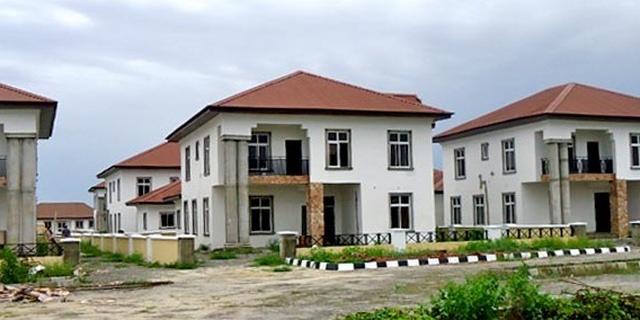2022 being a pre-election year, has made markets around the world continue to adjust to the pandemic. Each market is however peculiar and has had to adjust in its own way and the real estate market is no different from other markets.
Many analysts believe that in approximately 20 years, the value of global investable real estate will grow by an average of 5.2% yearly projected to exceed $85Trn. The investment motivation for owning real estate remains attractive, regardless of macroeconomic shocks and political forebodings that characterize the investment terrain.
Nigeria which is believed to be world’s largest black population according to a population projection of 200million people will be having general elections in 2023 with the effects of the pandemic, being a huge stumbling block to economic growth, leading to the Third Quarter (Q3) foreign trade balance recording approximately negative N3Trn.
The present administration is also plagued by weakening non-oil revenues due to insecurity and inflation despite the fact that there was a slight recovery by the Fourth Quarter (Q4) of 2021.
To cushion the effects of all these, the government took to raise record sums in the bond market – N2.6Trn by some estimates. Despite the President signing the Petroleum Industry Bill in a bid to improve energy governance, the perception of corruption remains a major source of concern.
Read Also: Manufacturing sector struggling to survive fiscal, monetary policies
The usual grand announcements of government led expenditures on social projects are expected in 2022 as the authorities rediscover the sensitivities of the average citizen. Millennials and Generation Z now influence spending over
$600Bn globally and are increasingly confident in real estate investing, an important fact not lost on brokers in Nigeria’s real estate market.
In the market, property agents report growth in tenant requirements for apartments in cities – out with the swimming pool and in with an income generating short stay apartment. And this population is on the increase. Data gleaned from the United Nations suggest that Abuja will be the fastest growing city in Africa, projected to grow 6% by the end of 2025.
Interestingly, the city of Lokoja in Kogi state ranks fourth on the list with a projected 5.93% growth by the end of 2025.
This will make the demand for infrastructure and housing even more apparent. Lagos State, believed to be the Commercial capital of Nigeria didn’t make the top 5.
Recently, the Edo state government signed up the Persianas Group, developers of the Palms Grade A mall in Lagos to develop a retail centre in Benin city and made significant progress with the German government on the return of 7,000 artefacts taken from the Benin Kingdom. Luxury lifestyle brand – Montblanc opened its first standalone boutique in Nigeria.
The prices for land and residential apartments in Nigeria’s leading cities which include, Kano, Lagos, Abuja, Lokoja, Port-Harcourt etc have moved up drastically. Second-tier cities have not been too far behind with developers launching small sized gated communities. Warehousing has now become even more critical to the functioning of the economy of Nigeria. Also, flexible terms and smaller space requirements have come to characterise the high grade office market.
Recently, a private equity firm, Development Partners International (DPI), focused on Africa, sold a portion of its stake in fast food chain, Food Concepts – the parent company of Chicken Republic, for an undisclosed amount. The Federal Executive Council approved $17.47Bn for the purchase of office block – Kanti Towers, Victoria Island, Lagos by the Nigeria Maritime Administration and Safety Agency as its new headquarters.
Also, Equinix a digital infrastructure company announced its intention to acquire Nigeria’s data centre and connectivity giant, MainOne for the sum of $320million. In another development, Ketron Investments bought out retailers – Shoprite and Purple raised a N5bn Sukuk Bonds Issue, achieving 100% subscription. Local investors across residential, retail, and healthcare have demonstrated a growing and strong confidence in the real estate market in Nigeria.
The migration to e-commerce and remote working is expected to last long after the pandemic has passed, altering the frequency and use of workplaces while enabling digital shopping and growing the digital economy of Nigeria.
It is however expected that the demand for warehouses, distribution centres, and other properties that allow eCommerce growth will continue to rise. In places where white-collar occupations are on a steady increase, there is also an upsurge in the demand for office space and living spaces.





